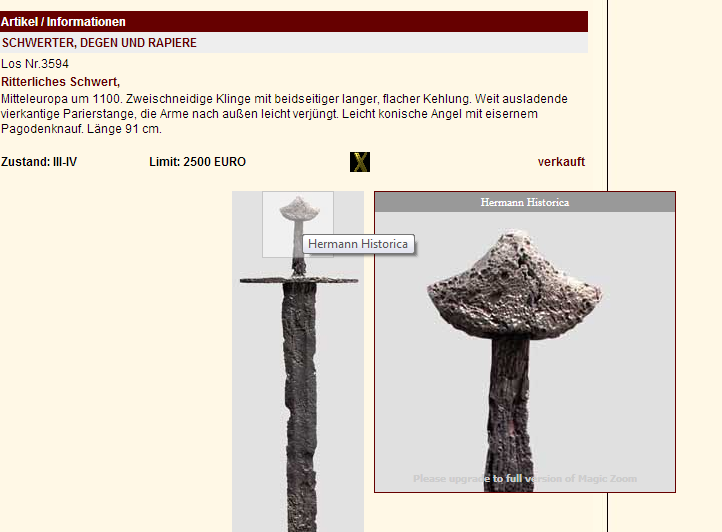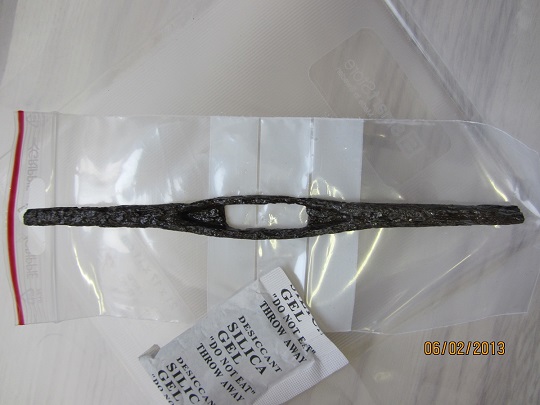Posts: 6 Location: denmark
Tue 21 Jan, 2014 7:20 am
All wood is dendro or c14 datet to 1025-1135 give or take 25 years, latest jewelry is calld Urnes-style and not seen after 1170 and not before 1040
earliste jevelry ringerike- style from 1000-1150
a special danish bird-brooch from 1100 + -
earliste coin 935 latest 1074.
we know from history that only 400 meters from the house there was a 14-15th century execution place.
all knives ar anglo-saxon-norman style, tools are a little harder to date.
a previous excavation found late viking graves in the church, witch suggest a previous wooden church.
but as i stated before it might have been buried at a later date. and 13th century living on af neighboring field
since it is a rather large and ritch settlement with a church built in 1125, it is difficult to understand the lack of weapons, not one arrowhead .
My post was only to hear if anyone have knowledge of til pommel and crossguard on 12th century sword,
i found this on hermann historica stating stating 1100 but that might be wrong ?
"my" pommel has been grinded on top to release the blade.
the soil layer in witch the items were found could be contaminatet, it is not a 100 % certain, I would have liked to call in
geologists to take soil sampels, but there was no money for that.
the national museum was really only interestet in securing the coins.
 Attachment: 93.99 KB
Attachment: 93.99 KB


